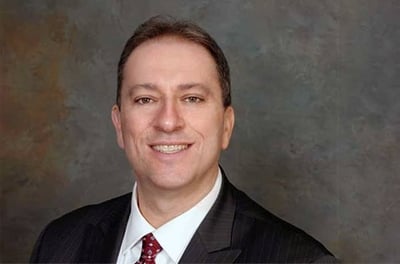Building a Better Auditor: Auditing and the Socratic Tradition
Blogs David O'Regan, LittD Feb 26, 2024

Auditing is a cooperative search for assurance. Auditor and audit client work together toward establishing the truth of a matter. I would argue this collaboration is so central to auditing that satisfactory auditing is almost impossible to achieve under adversarial conditions. To back my claim, I suggest that a comparison of auditing and legal proceedings illustrates what is at stake.
In contrast to the cooperative process central to auditing, courts of law seek truth through an adversarial process of challenge and argumentation. In a criminal trial, in countries with a common law tradition, both sides are offered a fair hearing through advocates representing the prosecution and the defense: The truth is disputed and, after the cut and thrust of debate, an impartial judge or jury decides the outcome. (Under an inquisitorial system in which a prosecutor simultaneously fulfills the role of the judge, disputation and argumentation still remain the methods of truth-seeking, with the accused’s interests protected by his or her defense advocate.)
In contrast to the quarrelsome belligerence underpinning legal processes, the auditor normally works cooperatively with those under audit. We may therefore conclude that debate and conflict are not among the conceptual building blocks of auditing: An audit is closer to an examination than to a cross-examination.
At this point you might raise an objection: Audits are not always tension-free. Auditors and clients frequently disagree, and sometimes on fundamental interpretations of evidence. For example, external auditors and their clients frequently differ on matters like the content and presentation of financial statements, and clients are frequently strongly encouraged to amend financial statements to avoid a modified audit opinion. Internal auditors not uncommonly face recalcitrant clients who challenge the facts and interpretations of audit findings.
Nonetheless, the differences of opinion that typically occur in auditing do not rise to the level of debate inherent in legal processes. In the rare case in which an auditor faces outright hostility, the audit is usually derailed. Auditors act within their rights to withdraw from an audit if they encounter strong hostility or an extreme lack of cooperation, or to report a scope limitation on the ability to conduct the audit. (In external auditing, a modified audit opinion may flow directly from inadequate auditor-client cooperation.)
Auditing, it is clear, is a cooperative endeavor, not a zero-sum game of disputation. While conflict is central to legal proceedings, it is an anomaly for auditing. This is, I believe, the reason why the United Nations’ inspection regimes that monitor weapons of mass destruction do not describe their activities as auditing, as cooperation is usually imposed on the parties involved. Words matter, and the term auditing has overtly cooperative implications.
A final thought. The legal profession often delights in claiming that the adversariality built into legal processes reflects the long and prestigious tradition of the Socratic search for truth. Lawyers often claim that, just as Socrates’ question-and-answer sessions with the citizens of Athens unmasked their prejudices and lies, so the to-and-fro of legal debate chips away at extraneous details to uncover the truth. Or they claim that legal training involves the Socratic method, in which students are put on the spot with a series of challenging questions. I believe that such views are based on a profound misunderstanding of the Socratic approach.
The Socratic dialogue was always essentially cooperative, not argumentative, and this is clear from Plato’s dialogues. In Gorgias, for example, Callicles grumpily refuses to cooperate with Socrates, and the consequence is a temporary breakdown in the dialogue, which descends into the dead end of Callicles’ destructive showboating. Socrates, in contrast, was not there to showboat, but to promote fresh, cooperative thinking. In Theaetetus, he describes himself as a midwife, metaphorically helping his dialogue partners “give birth” to new insights into the truth.
The caricature of the Socratic method that is deployed in legal training arguably encourages glib and quick-witted responses, resulting in what Socrates dismissed as “rhetoric” (persuasive speaking that is often manipulative and false) rather than truthful speech. I would argue that if any professional practice today can justifiably lay claim to the Socratic tradition, it is auditing. The collaborative approach of auditing rather than the adversariality inherent in the legal process is closer to the intentions of Socrates. And this is something in which the audit profession should take pride: Auditors are modern inheritors of one of the most prestigious, ancient traditions of truth-seeking through cooperation.


